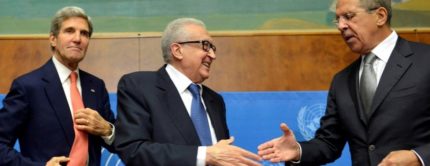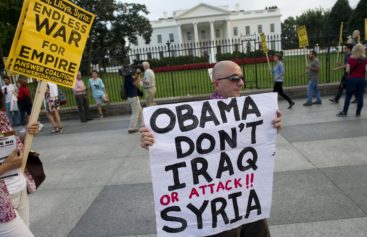President Obama continues to make the case for American intervention in Syria, securing a key endorsement for military action from Sen. John McCain, while 5,000 people a day flee the Syrian civil war to take refuge in neighboring countries. So far 2 million have fled —including 1 million children, according to the United Nations.
The situation in Syria has long been a crisis, but it has grown exponentially more desperate since President Bashar al-Assad’s forces launched a sarin attack in the Damascus suburbs on Aug. 21 that killed more than 1,400 people.
“Syria has become the great tragedy of this century—a disgraceful humanitarian calamity with suffering and displacement unparalleled in recent history,” the U.N. High Commissioner for Refugees, António Guterres, said. “Syria is hemorrhaging women, children and men who cross borders often with little more than the clothes on their backs.”
The primary hosts for the refugees are the neighboring countries of Iraq, Jordan, Lebanon and Turkey, whose ministers were due to meet U.N. officials tomorrow in Geneva to figure out how to draw more international aid.
“If the situation continues to deteriorate at this rate, the number of refugees will only grow, and some neighboring countries could be brought to the point of collapse,” film actress and U.N. High Commission for Refugees special envoy to Syria, Angelina Jolie said.
But even as the situation in Syria grows more desperate, Obama faces stiff resistance at home to American military intervention.
After an hourlong meeting with the president and Senator Lindsey Graham (R-S.C.), McCain said yesterday that he would back a limited strike if the president did more to arm the Syrian rebels and the attack was punishing enough to weaken the Syrian military.
McCain said he and Graham would be meeting with Susan E. Rice, the national security adviser, to discuss the administration’s strategy in more depth.
“It is all in the details, but I left the meeting feeling better than I felt before about what happens the day after and that the purpose of the attack is going to be a little more robust than I thought,” Graham told the New York Times.
“There was no concrete agreement, ‘OK, we got a deal,’ ” McCain said. “Like a lot of things, the devil is in the details.”
But McCain called the meeting “encouraging,” and more importantly from the White House perspective, he urged his fellow lawmakers to support the president’s plan for military action in Syria.
He said a no vote in Congress would be “catastrophic” for the United States and its credibility in the world.


